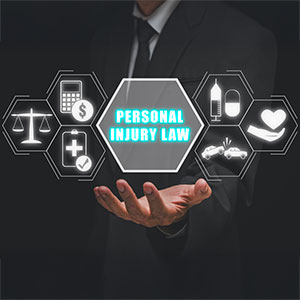Opening a Probate for a Wrongful Death Case
How To Open A Probate For A Florida Wrongful Death Case
In many wrongful death cases in Florida, the only asset is the case itself. When this happens, your personal injury attorney is likely to file the probate for you and will advance the cost for you. If there are assets in the estate, then you will likely be referred out to an attorney who specializes in probate work but your personal injury attorney will file the wrongful death claim for you.
What To Do Before Opening A Probate For Wrongful Death
Before filing a probate, you should talk to everyone who is a potential heir of the decedent and you should mutually agree who the personal representative should be. Typically, only one person takes the role of personal representative (however, parents of a deceased minor child can become “Co-Personal Representatives”).
The process goes much smoother if you can agree on who that person is going to be. If you cannot agree on who that person should be, then everyone wishing to become personal representative must file an application with the court and a hearing is held in front of the judge. Usually it is an obvious choice as to who the personal representative is going to be.
You should also look for evidence of any creditors and you should look for an original copy of a last will and testament. You only have 10 days from the date of death to file an original will (if one exists) under section 732.901, Fla. Stat. Without a will, the probate will be handled under the “intestacy” statutes, which are default rules of succession by law (having a will is to modify the default rules).
In deciding who should be personal representative, you should make sure that the person you agree on is qualified under the law to serve as personal representative. A personal representative in Florida must be either:
- a Florida resident; or
- a spouse, sibling, parent, child or other close relative of the decedent
A non-resident of Florida who is not closely related to the decedent cannot become personal representative. Also, anyone with a felony conviction cannot serve as a personal representative over an estate in Florida.
What Happens Next After Filing?
After you have filed your probate by filing a “notice of administration” (assuming no contest over appointing a personal representative and no contest over whether a valid will was filed) in the jurisdiction in which the person died, then the next thing that will happen is that the probate court will issue what are called “letters of administration” to the personal representative. These letters of administration give the personal representative the legal authority to take all necessary and legal action on behalf of the estate.
The next steps after receiving letters of administration will be to conduct a “diligent search” for creditors and publish a “notice to creditors.” Creditors will have 90 days to respond to a published notice and a creditor whom you serve with the notice to creditors only has 30 days to respond.
If a claim is received from a creditor, the personal representative should usually file an “objection,” however there is a 30 day deadline to file. A creditor whose claim has been objected to must file a lawsuit within 30 days of the objection, otherwise, their claim is barred. Most creditors will not file a lawsuit against the estate and, therefore, it is usually advantageous to object to a creditor’s claim.
Further, the following deadlines apply:
- 45 days after notice to creditors to file a “proof of publication”
- 60 days after letters of administration to file an “inventory” of all assets (the wrongful death claim will be listed as a contingent asset)
The Wrongful Death Case
The more important part of the personal representative’s role is to file the wrongful death case through a personal injury attorney. This must always be done within two years from the date of death (statute of limitations), even if there is a long, drawn out fight with appeals over who the personal representative is going to be or a will contest. After the lawsuit is filed, the personal representative can expect to complete “discovery” including interrogatories and producing documents as requested by the defense.
The personal representative should also expect to give a deposition and should be present at a court-ordered mediation. The other survivors of the decedent should also expect to give a deposition and should (but are not required to) attend the court-ordered mediation. If the claim does not settle, then each survivor must give their own testimony at trial about their relationship to the decedent and the individual suffering that the death has caused them.
At trial, each survivor is not necessarily treated equally as the jury can award a different amount to a survivor if they are compelled or moved to do so because of the loss.
Call A Lakeland Wrongful Death Attorney To Discuss Your Case
If you have experienced a death in the family due to a car accident or a medical malpractice incident, you should contact a Lakeland wrongful death attorney for a free consultation. We assist clients who have lost loved ones in Polk County including Lakeland, Winter Haven, Bartow, and Haines City, Florida.


